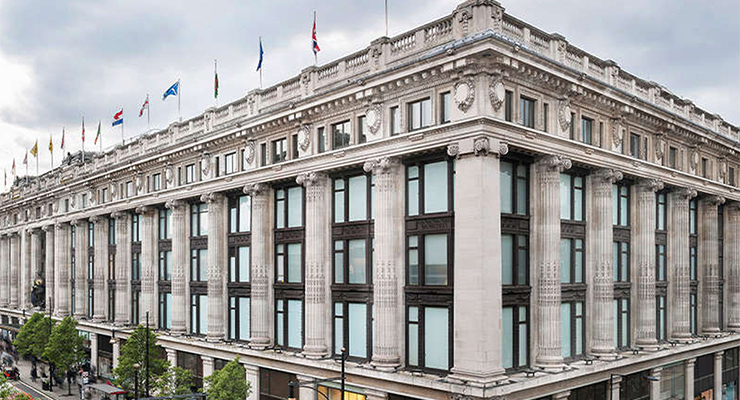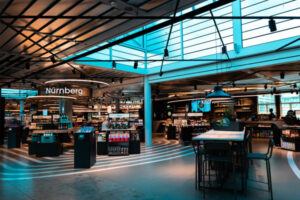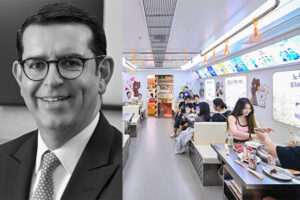According to Signa, the acquisition will create one of the world’s leading department store groups–in 2019, sales of the combined portfolio of Signa and Central amounted to five billion euros, and are expected to increase to more than seven billion euros by 2024. The two groups’ luxury department stores already include KaDeWe Group, Rinascente in Italy, and Globus in Switzerland. Sefridges Group comprises four brands and 18 luxury department stores in Europe, including Selfridges stores in London, Manchester, and Birmingham.
Most famous is the flagship store on London’s Oxford Street, the largest department store in London after Harrods. Since it opened in 1909, the swanky, five-story building with its columned facade has been one of the highlights of any luxury shopping trip in the British capital–and Selfridges is known for always trying something new in retail.
Its founder, U.S. citizen Harry Gordon Selfridge, revolutionized the shopping experience for Britons, at least those with the wherewithal: In his vision, shopping should not be a chore, but an event with entertainment value. In the 1920s and 30s, for example, you could not only have lunch and coffee at Selfridges, but also play miniature golf, plus women had the opportunity to test their aim in a shooting range.
Today, you’ll find a movie theater and a skate park, there are art installations, and in the toy department there’s a giant, walk-through keyboard like the one in the 1980s Tom Hanks movie “Big.” Also famous are the lavishly decorated window displays that attract thousands of visitors each Christmas. And now you can get married there as well.
In 1998, Selfridges expanded and opened two stores in Manchester, followed by a department store in Birmingham in 2003. In the same year, the department store chain was bought by Canadian entrepreneur Galen Weston for almost 600 million pounds. Weston, who recently passed away, made a point of maintaining the character of Selfridges as a kind of experience park, and the entrepreneurial family also invested in the development of an e-commerce platform. In this way, Selfridges has pursued a different strategy than Harrods, which stands on the other side of Hyde Park, in Knightsbridge: Harrods and its Qatari owners focus more on the classic British shopping tradition, while Selfridges is always on the lookout for the latest thrill for shoppers. He doesn’t see his competition in other department stores, but in “cinemas, restaurants and all the places where customers want to spend their leisure time,” Galen Weston once said.
Also, unlike Harrods, Selfridges is even more focused on its local clientele; it carries a mix of luxury and lower-priced mainstream brands. Still, well-heeled customers from the Middle and Far East have become increasingly important in recent years. The Covid pandemic, which at times brought the flow of tourists to a complete standstill, has hit the Oxford Street store hard–as it has the entire industry. The most prominent victim in the UK was the department store chain Debenhams, which went into liquidation in May and had to close all its stores after more than 240 years. Selfridges is in a better position, but Covid hit the company hard: in the summer of 2020, it cut 450 jobs, or about 14 percent of its total workforce–Selfridges spoke of its “most difficult year.”
Nevertheless, the new owners are confident. He would ensure that Selfridges would have a “bright future for the next 100 years,” said Tos Chirathivat, Chairman of Central. The latest figures from the cab platform Uber should make him happy: According to them, the department store was the most frequent destination for Uber passengers throughout Europe from January to November 2021–even ahead of the Arc de Triomphe or Buckingham Palace.







